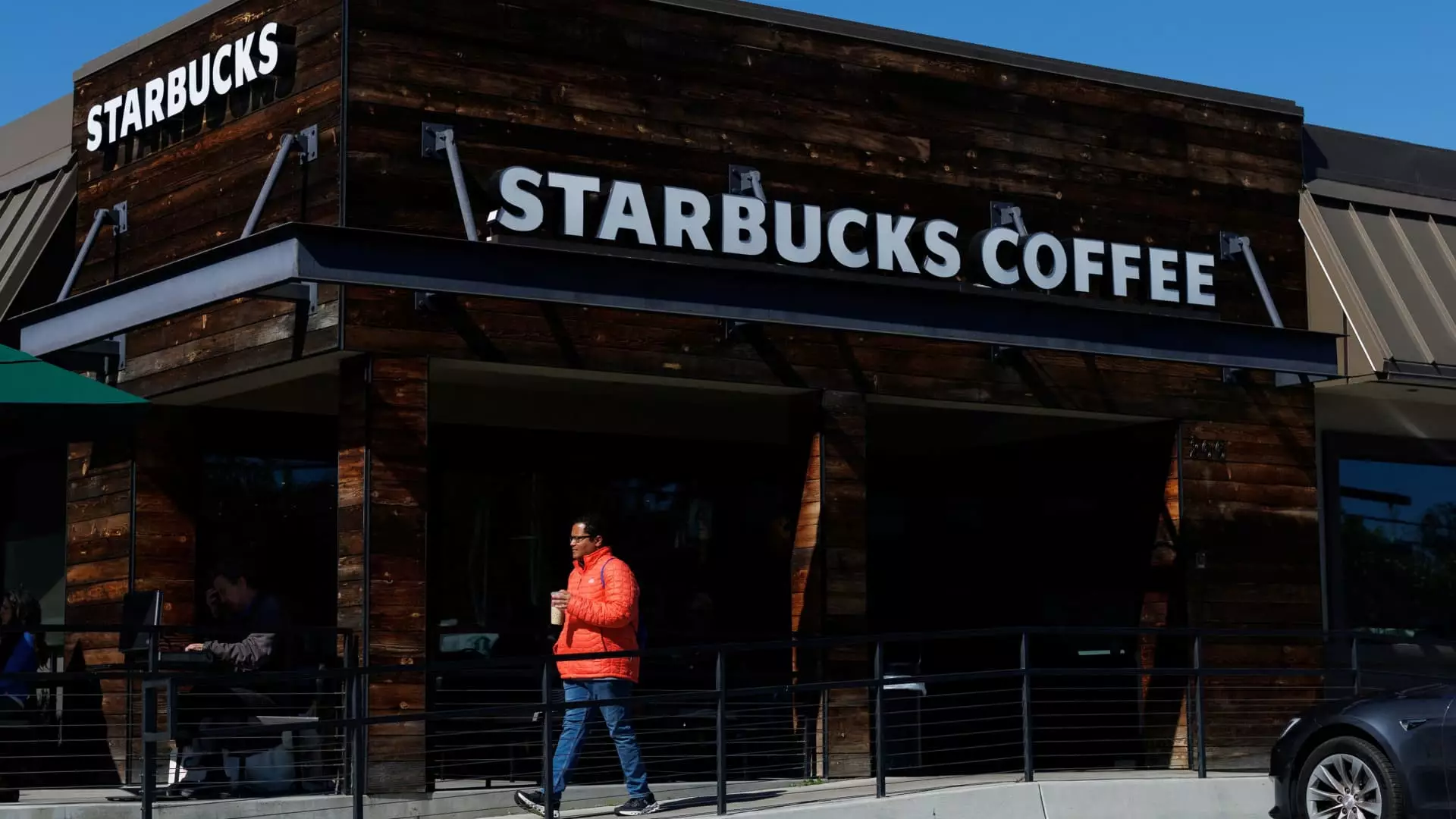In the wake of recent market movements, the restaurant sector finds itself teetering on the brink of turmoil. Stocks nosedived on Monday as fear of an impending recession gripped investors, a sentiment exacerbated by President Trump’s controversial imposition of high tariffs on goods from crucial trading partners. While analysts suggest that the direct impact on restaurant operations might be manageable, the underlying threat is far more nuanced: a damaging inflationary spiral that could squeeze consumer spending and industry demand.
The anxiety cascading through the markets is palpable, with analysts like UBS’s Dennis Geiger succinctly capturing the broader sentiment: “The direct cost impact of tariffs on restaurants is manageable, but the potential pressure on consumer wallets is the more significant concern.” This sentiment rings true as restaurant chains brace themselves for a potential downturn that extends beyond operational costs.
Starbucks: A Beacon Dimming
When assessing the implications of rising tariffs, one cannot overlook the pronounced ripple effect on high-profile chains such as Starbucks, which saw its stock fall by over 2% following a downgrade by Baird. A substantial part of the coffee chain’s woes stems from the emerging threat of inflation, coupled with a pervasive apprehension around recession. Not only have tariffs impacted coffee prices — particularly from key exporters like Brazil and Vietnam — but they have also ignited an undercurrent of anti-American sentiment in markets such as China, Starbucks’ second-largest consumer base.
The world’s reliance on the Coffee Belt for production makes it impossible for companies like Starbucks to pivot production domestically. Recent tariff increases are set to drive coffee costs up, while consumer confidence falls. The dual-edge sword of heightened production costs and the rising anti-Western sentiment is testing the resilience of this iconic brand, leading analysts to caution about its near-term prospects.
Casual Dining Chains Feel the Squeeze
The volatility isn’t limited to coffee franchises alone. Casual dining chains, including Dine Brands — known for Applebee’s and IHOP — experienced severe declines in their stocks, dropping nearly 3%. This sector, traditionally seen as resilient, now faces unprecedented challenges as rising costs and shifting consumer preferences compound existing vulnerabilities. Even widespread market favorites like Darden Restaurants and Texas Roadhouse weren’t immune, witnessing declines between 1% to 2%.
Fast-casual segments have also observed a downturn, with Chipotle seeing its shares slip nearly 2% amidst rising economic fears. Despite their previous status as darlings of the investment community, these chains face the stark reality that consumer sentiment can shift rapidly, particularly during uncertain economic times.
Fast-Food Giants Face Unique Challenges
Historically, fast-food chains have been viewed as safe havens during economic downturns, as customers often lean towards cheaper meal options. However, last year’s economic tremors revealed a more complicated picture: quick-service restaurants encountered unexpected obstacles as low-income consumers lessened their visits, directly impacting same-store sales. Major entities like McDonald’s and Yum Brands felt the brunt, each witnessing dips in their shares on Monday.
As inflation bites deeper into disposable incomes, even loyal patrons may reconsider frequenting establishments renowned for affordability. The landscape is shifting; economic caution is altering dining habits across the board.
A Flicker of Hope Amidst Despair
While the overarching narrative may paint a bleak picture for the restaurant industry, glimmers of resilience remain. Some robust newcomers are responding positively to the current climate. Dutch Bros, a rising competitor in the coffee market, saw its shares bounce back, gaining over 4% in the afternoon after a prior slide. Cava, another strong performer, surged by over 6%, suggesting that despite macroeconomic turmoil, there remains room for innovation and growth.
In an era where uncertainty reigns, these small victories serve as a reminder that not all is lost. The ability to adapt and thrive is crucial as the industry navigates through this challenging chapter. Understanding the implications of policy decisions and the shifting economic landscape will be vital for restaurateurs and investors alike as they chart a path forward.

